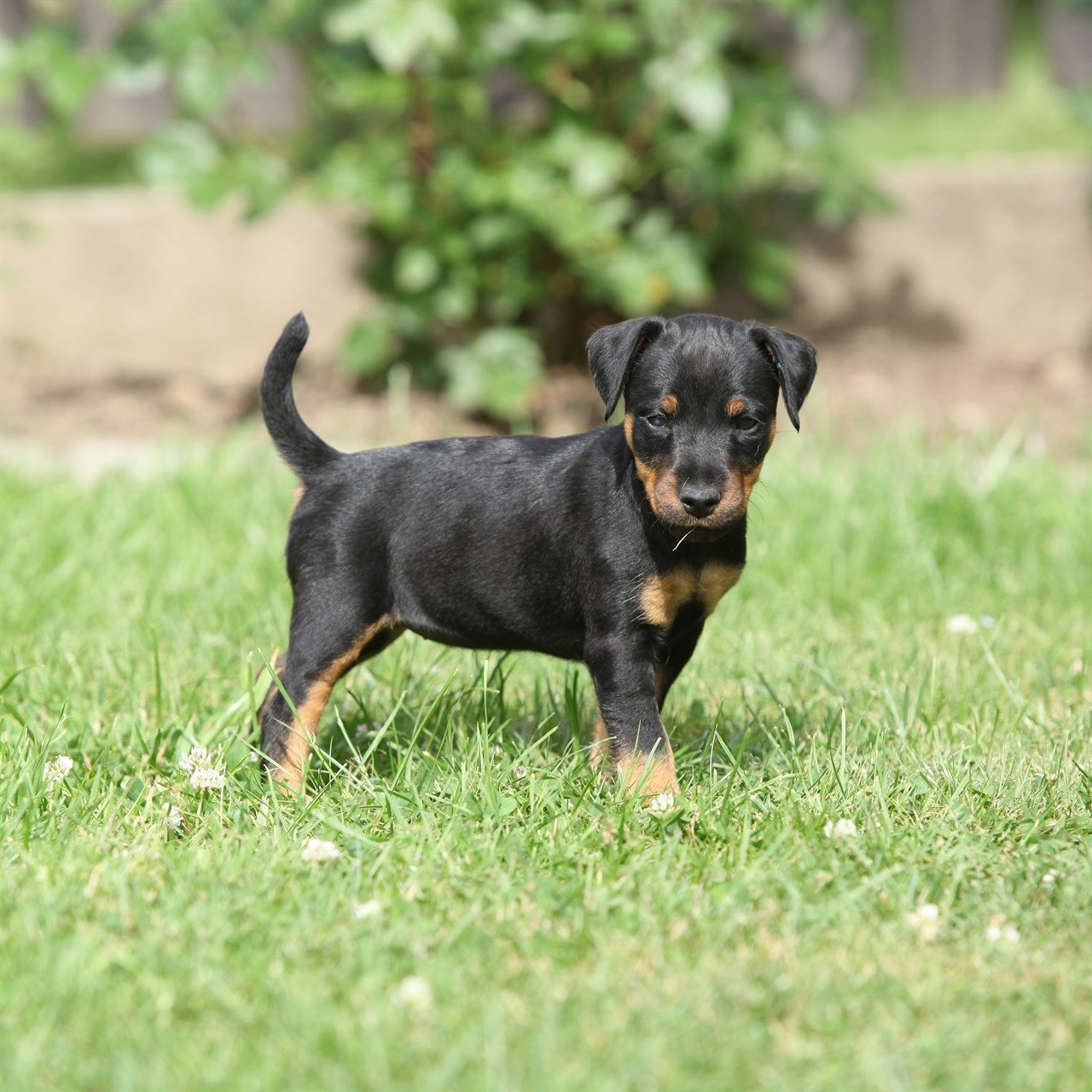Feeding Habits and Food Requirements of the German Hunting Terrier

Proper nutrition is essential to keep your German Hunting Terrier, also known as a Jagdterrier, healthy, energetic, and ready for hunting or other activities. Here are some guidelines for their feeding habits and food requirements.
High-Quality Dog Food
Choose a high-quality commercial dog food that meets the nutritional needs of your Jagdterrier. Look for brands that list meat or meat meal as the first ingredient, as this provides essential protein.
Age-Appropriate Feeding
Feeding requirements vary based on your Jagdterrier's age. Puppies need food specifically formulated for growth, while adult dogs require a balanced maintenance diet. Senior dogs may have different nutritional needs, so consult with your veterinarian as your dog ages.
Portion Control
Be mindful of portion control to prevent overfeeding, which can lead to obesity. Follow the feeding guidelines on the dog food packaging and adjust portions based on your dog's activity level, age, and overall health.
Scheduled Feeding
Establish a consistent feeding schedule for your Jagdterrier. Most dogs do well with two meals a day, one in the morning and one in the evening. Scheduled feeding helps regulate their metabolism and prevents grazing.
Fresh Water
Ensure your Jagdterrier has access to fresh, clean water at all times. Hydration is crucial, especially for active dogs like the German Hunting Terrier.
Avoid Table Scraps
While it may be tempting to share human food with your dog, avoid feeding them table scraps. Human food can be high in calories, contain ingredients that are harmful to dogs, and disrupt their balanced diet.
Watch for Allergies and Sensitivities
Pay attention to any signs of food allergies or sensitivities, such as digestive issues, skin problems, or excessive itching. If you suspect your Jagdterrier has dietary issues, consult your veterinarian to explore appropriate dietary changes.
Treats in Moderation
Treats can be a helpful tool for training and rewarding your Jagdterrier, but use them in moderation. Overindulgence in treats can contribute to weight gain.
Special Dietary Needs
If your Jagdterrier has specific dietary requirements or health issues, consult with your veterinarian to determine the best diet plan. Some dogs may require special diets due to allergies, medical conditions, or age-related concerns.
Monitor Body Condition
Regularly assess your Jagdterrier's body condition by looking for signs of obesity or excessive thinness. Adjust their diet as needed to maintain a healthy body weight.
Consult with a Veterinarian
Regular check-ups with your veterinarian are essential to ensure your Jagdterrier's nutritional needs are met. Your vet can provide guidance on diet, portion size, and any dietary supplements that may be necessary.
In conclusion, maintaining a healthy and balanced diet is essential for the well-being of your German Hunting Terrier. Providing the right type and amount of food, along with proper portion control and attention to your dog's age and activity level, will help ensure that your Jagdterrier remains in good health and has the energy needed for its active lifestyle.
German Hunting Terrier puppies for sale
- Find German Hunting Terrier puppies for sale in ACT
- Find German Hunting Terrier puppies for sale in NSW
- Find German Hunting Terrier puppies for sale in NT
- Find German Hunting Terrier puppies for sale in QLD
- Find German Hunting Terrier puppies for sale in SA
- Find German Hunting Terrier puppies for sale in TAS
- Find German Hunting Terrier puppies for sale in VIC
- Find German Hunting Terrier puppies for sale in WA